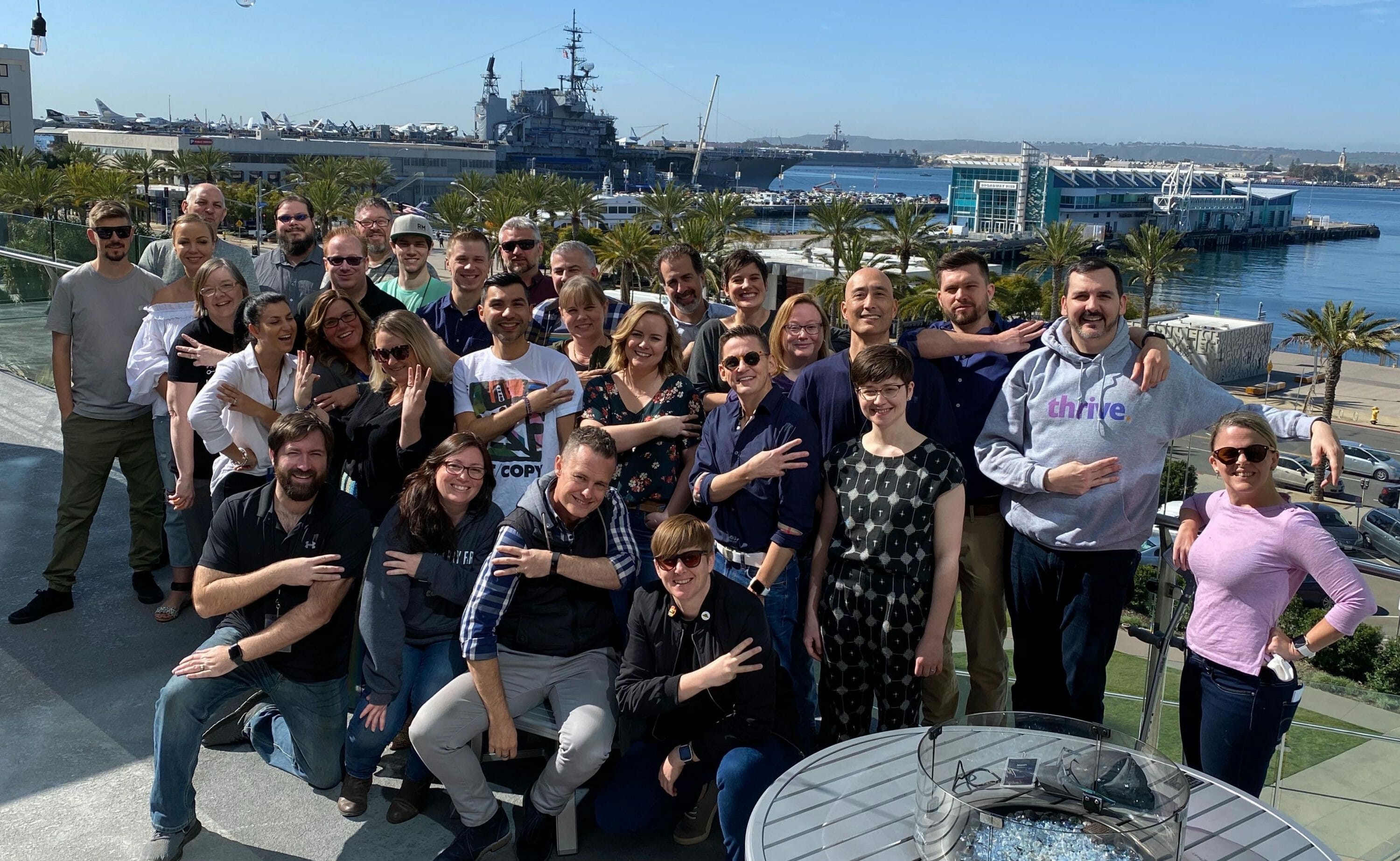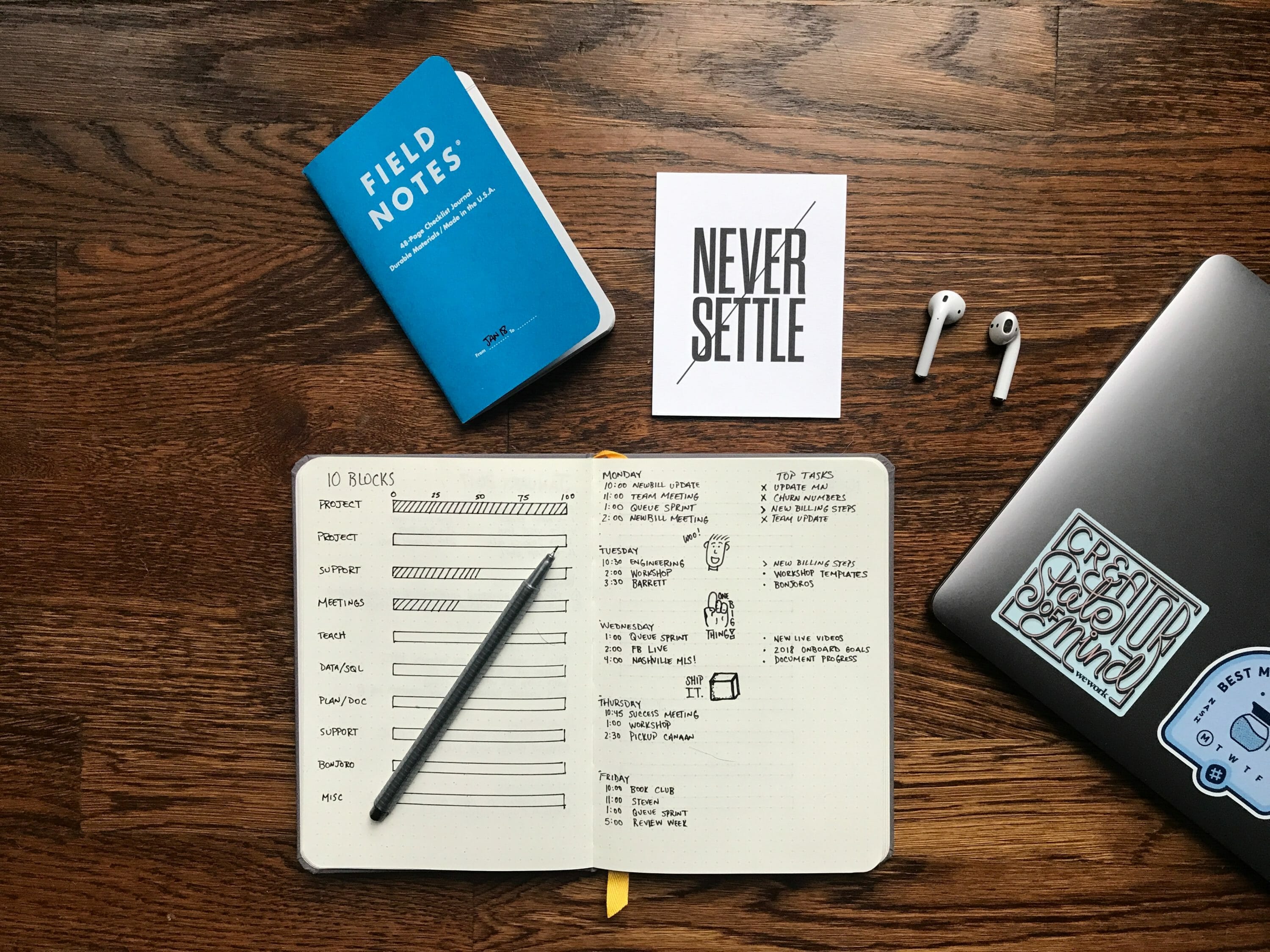Where it Started
I think I built my first “professional” website in 1998 or 1999. It wasn’t good.
Worse than that though – I had no idea how to run a business. The site was bad even by 1999 standards (does anyone remember Microsoft FrontPage?) – and I am pretty sure I gave it away. I then practically gave away the next dozen or so websites – $200 here, $500 there. But at the time, I had a very nice gig working as a government contractor – so money was not an issue and web design was just a side-thing.
I mean – it was probably a fad anyway, right?
Eventually, I started to get a bit more serious about design and development. And more importantly, I started to focus on how I could help my clients better. The government contracting thing was coming to an end in 2009 – so I decided to go full time with web design and development for small businesses.
I’ll make a long story short and just say that I cranked out a bunch of websites and prices that were way too low, and for clients that were allowed to set the project boundaries and scope, and basically run my business in a sense.
Then I stumbled upon a Facebook ad to buy the “Better Client Flight Plan” by some dude named Troy Dean. I quickly purchased the Agency Mavericks Blueprint, absorbed it all and followed it to the letter. I doubled the price on my next proposal and took control of the projects and the sales process and I never looked back.
Now I’m a Coach with Agency Mavericks and The Mavericks Club, and I often find myself thinking “boy, I wish I knew this stuff back then”!
So I want to share with you the 10 things I would go back and tell myself in 2009 when I was going full time into this.
Know Your Why
We’ve all heard this. Simon Sinek’s book “Start with Why” changed my business. I needed to know why I was doing this.
Who did I want to help and how did I want to help them? But more importantly, why?
I won’t go into my why – I think it can be a bit personal sometimes, but I encourage you to examine this and try to define why you do what you do. It’s not money – I can assure you of that. If the first thing you are thinking about is “putting food on the table” – then I beg you to get rid of the scarcity mindset and go deeper and think about abundance.
Think Bigger
As I said, the first thing I did when I joined Agency Mavericks was to double the price on my next proposal. That was the start, but it was more than just the money.
Thinking bigger means also to think about growing a team and scaling the business.
It means thinking about going after clients you might have previously thought you were not worthy of.
It means to think about community – both the community you are helping and the community that can help you. It means thinking outside the box on all of these things and expanding your horizons. And yeah – it means increasing your self worth to know that you are able to, and deserving of, higher project investments from your clients.
Set Boundaries
Oh man, this was a tough one for me. I used to let the client run the project and change the scope anytime they needed to. I used to let them call me after hours and on weekends. I used to let them text me! And I used to end up with projects that dragged on and on. I used to end up working late nights and weekends. I used to be stressed and sleepless. And most importantly I used to be broke! (Sound familiar?)
You see, making clients happy by not having boundaries doesn’t make your business better, or more profitable. It does not make you more productive. In fact, it does the opposite of all those things.
You’re burnt out, you’re frustrated, your projects last forever and never get anywhere, you can’t focus on growing the business because your processes are shot and you’re buried in client-work.
My advice for setting boundaries:
- Have an onboarding process that let’s new clients know from the start that you have processes in place and what those are.
- You don’t communicate via text because you need to keep a paper trail of communications and be able to share it with the team
- You don’t work after hours or on weekends, (and neither should they), because you value your private/family time, and you value theirs as well.
- You don’t take random phone calls, instead, you have a booking tool where they can book a call when needed.
- You will regularly schedule meetings with them during the project (This could be weekly or bi-weekly.)
- Your contracts/proposal should make it clear that any changes to the scope outlined therein will require a new contract at a new investment.
Think Like a CEO

This is another biggie. The sooner you start thinking like the leader of a company and stop thinking about the tasks, the sooner your business will succeed.
To think like a CEO you need to stop thinking about actions and start thinking about OUTCOMES. When you have a team, you need to not delegate individual tasks – but instead delegate OUTCOMES.
And beyond that, you need to be focused on business development. Building relationships with clients, partners and industry leaders in your niches. Closing sales deals, and keeping the clients happy at a high level.
Hire a Team
When we talk about “hiring a team” we usually first think about actual employees. To me, that is the goal. But it’s certainly not a bad idea to start building your team by finding “partners” you can work with.
Eventually, if you truly want to scale, you’ll hire employees. But first, look for reputable people and agencies you can work with to do the work you don’t want to do, or you don’t know how to do.
But eventually, you will probably want to hire someone to be part of the team.
The advantages of this are many:
- Having a team means that you can rely on your team to follow your processes
- They are as invested in great results as you are.
- If the client work is slow, they can help you work “on” the business too. A hired contractor will cost too much to do that.
One of the big hesitations with hiring a team is you are not sure what position to hire for. The best way to do this is what we call the Sweet Spot Exercise: determine the things that YOU should be working on by asking:
- What do I LOVE?
- What am I really good at?
- What can no-one else do for the business?

Anything that checks off all three of those boxes, you keep for yourself (for now). But anything that doesn’t tick all three – that’s what you hire for.
Having a team in place will free you up to scale your business. You’ll probably spend more time building relationships with clients, referral partners, and vendors; and more time closing deals and keeping clients happy. You can be the face of the business without actually needing to have your hands on the tools. More will get done, I promise.
Processes Are The Gears That Make It Go
So now you’re thinking about a team. Great. Before you hire them, you will want to start thinking about the HOW.
How do you do the things you do? And how do you explain this to an employee so that they deliver the best services to your clients?
EVERYTHING is a process.
At first, it might be hard to think of how to go about documenting your processes, because after all, you just do it and get it done, right? You know how to do it – what is there to document?
Start by breaking it down:
- What are the things you are doing for each project?
- How can you compartmentalize them into separate processes or sets-of-tasks?
Start recording what you do with a tool like Loom. As a general rule, anything that ends up being more than a 3-5 minute video is probably more than one process so break it down further.
Speak out loud during the video and narrate exactly what you’re doing.
“First we install the Yoast Plugin by going to the Plugin Page, installing and activating it. Then we go to the setup page, and we do this for this setting, and we do this for that setting….”
You get the idea. Narrate your way through all the things you do for a project and you’ll have your processes ready for when you hire that team.
Without having your processes ready, it means two things:
- It means you have not given enough thought to exactly how you want to do each thing, which is a problem. You should be doing tasks the same way for every project. That’s one of the keys to growing your business the right way.
- If you hire a team without processes at least semi-documented, you’re in for a huge headache. Your new hire will have their own way of doing things and if it isn’t up to your standards, you’re in trouble.
If a new hire does come to the table with processes, have an open mind and consider adjusting your processes, but only if the new process is better than yours.
Recurring Revenue is the Holy Grail
Oh boy. This is a biggie. You absolutely must figure out how to generate recurring revenue.
Having a certain percentage of your revenue coming in automatically every month will enable you to:
- Make it through the lean months
- Start paying yourself an actual salary
- Afford to be able to hire a team
- Afford to market your business
- Be able to take vacations
- And more…
If you haven’t already, you need to think about how to package a set of services into something that people will pay for monthly. It doesn’t mean you don’t have to deliver, of course (obviously, you do). But with the right processes and the right team in place, plus the right amount of recurring revenue coming in, your business will grow.
Niche Down
Be that big fish in the small pond. Get to be known as the agency that solves problems for a specific set of people. When someone thinks of your niche-client base, you want them to think of you.
Convincing someone to have a niche is one of the toughest things we do as coaches. The scarcity mindset that we all bring to this conversation causes us to be afraid we’re going to lose opportunities. “But if I only work with dentists and a plumber comes along…..”. It’s ok. Work with the plumber anyway. But if you narrow your marketing and focus into one niche, you’re going to eventually be known as THE person to turn to for those clients.
You can focus all your content, marketing, networking, and effort all in one place and you will reap the rewards.
And no one says you can’t start a second niche once you have that first one established, right?
Delegate Outcomes, not Tasks
Delegating tasks means you’re a project manager and not a very good one. Delegating outcomes means you’re a leader.
What’s the difference?
You delegate tasks when you tell your development team that you want them to install this specific plugin and set up specifically this way, and put it on these specific pages under this specific headline with this specific button-text and send it to this specific email.
You delegate outcomes when you say “the client needs more leads sent to their email list – they currently only get 10 a month – we need to get them 50”.
Let your team, who is more than capable, figure out the details. Let them follow the processes that you and they have refined over time. Let them use their tool-specific knowledge that you have lost the edge on since tools are no longer your focus.
Tell them what the outcome needs to be. Let them do the rest.
Find a Tribe
Last, but possibly most important: Find Your Tribe.
Find a group of like-minded people you can bounce ideas off. Other agency owners who have been through what you’re going through, or are currently in the same boat.
Find business owners that are in completely different industries. If you’re a digital agency, find an accountant, a travel agent, and a physical therapist to hang out with and talk about running your businesses. You will learn a lot about how businesses of all types are run and you’ll find things to apply to your agency.
My suggestion is to have both: a group of agency owners, and a group of non-agency business owners.
My tribes are the Mavericks in The Mavericks Club, and my local BNI Chapter.
Who is your tribe?

Conclusion
There are other things I’d tell myself in 1999 if I had a time machine. Like “buy all the bitcoin as soon as you hear about it” or “invest more in Apple”. But the 10 things above are probably the best business advice I could give myself, and you.
Don’t wait 10 years and wish you had done these things today. Start now.






